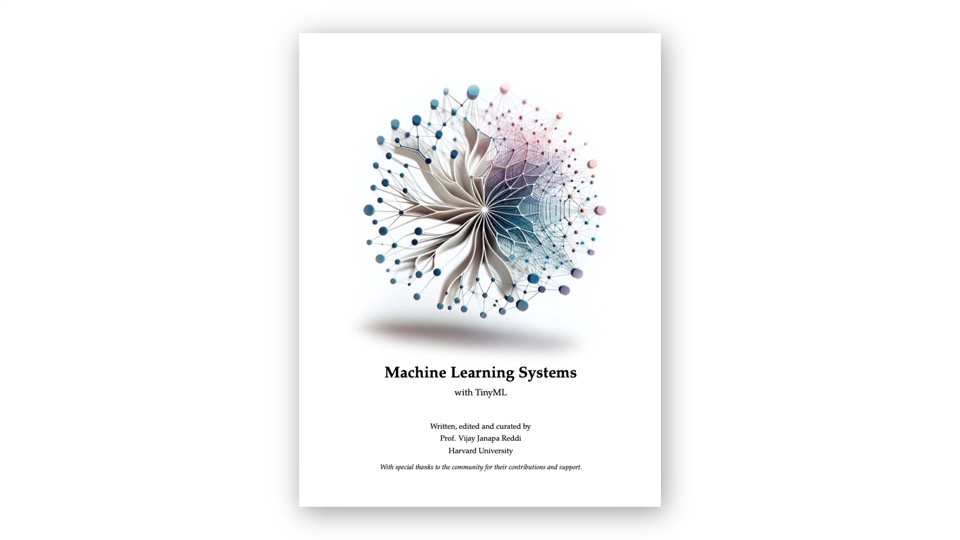About this Book
Several chapters (Labs) in this book also accompany the open book Machine Learning Systems, which we invite you to read.

“Edge AI Engineering: Hands-on with the Raspberry Pi” is designed as a practical, project-based learning resource that bridges theoretical AI concepts with tangible implementations. This book is part of the open-source Machine Learning Systems initiative, democratizing access to AI education and applications.
Key Features
- Progressive Learning Path: The book structure follows a natural progression from basic to advanced concepts, beginning with foundational computer vision applications and advancing to generative AI techniques.
- Model-Specific Optimizations: Each chapter provides targeted guidance for specific Raspberry Pi models, helping you maximize performance whether you’re using a Pi Zero 2W or a Pi 5.
- Open-Source Foundation: We emphasize accessible tools and frameworks, including Edge Impulse Studio, TensorFlow Lite, PyTorch, Transformers, and Ollama, ensuring you can continue your learning journey with widely available resources.
- Practical Problem-Solving: Rather than abstract exercises, each project addresses real-world challenges that demonstrate Edge AI’s practical value.
- Resource Optimization Techniques: Learn essential strategies for deploying AI on resource-constrained devices, balancing performance needs with hardware limitations.
- Cross-Domain Applications: Explore implementations spanning computer vision, natural language processing, and physical computing, showcasing the versatility of Edge AI.
Structure and Organization
The book is organized into two main sections:
- Fixed Function AI (Computer Vision): Chapters covering image classification, object detection, and specialized applications like object counting. We also explore the section “Hardware Acceleration for Fixed-Function AI.”
- Generative AI (Language and Vision Models): Chapters exploring Small Language Models, Vision-Language Models, physical computing integration, and advanced optimization techniques.
Each chapter follows a consistent format that includes:
- Conceptual background and theory
- Step-by-step implementation guides
- Practical projects with complete code
- Performance optimization strategies
- Ideas for further exploration
Prerequisites
While designed to be accessible, readers will benefit from:
- Basic Python programming knowledge
- Familiarity with Linux command-line basics
- Elementary understanding of machine learning concepts
- Previous experience with Raspberry Pi (helpful but not required)
By completing this book, you’ll possess the skills to design, implement, and optimize Edge AI applications across a wide range of use cases, leveraging the unique capabilities of the Raspberry Pi platform to bring intelligence to the edge.